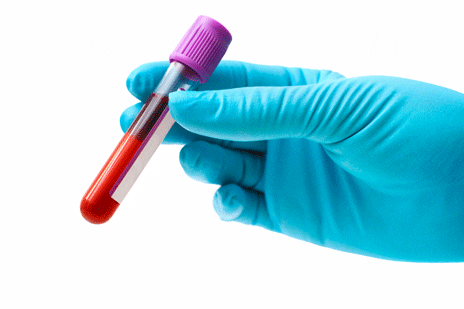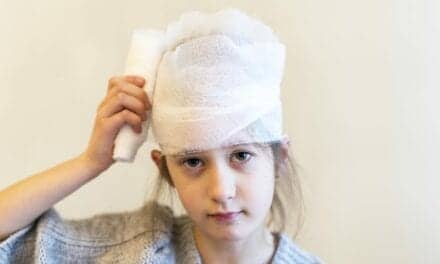A new blood test may be able to detect the occurrence of concussion in children, according to a recent study.
The blood test, developed by a physician and researcher from Florida, has already been used in adults. When used with children, it detected the presence of a traumatic brain injury (TBI) 94% of the time.
In addition, when TBI-presence results were negative, it meant that a CT scan—and the radiation exposure it brings—may not be necessary, according to a media release that appeared on HealthDay.
Linda Papa, MD, an emergency medicine physician with Orlando Health in Florida who developed the blood test, notes in the release that it measures levels of glial fibrillary acidic protein (GFAP). This protein is found in cells that surround neurons in the brain. When the brain is injured, GFAP is released into the bloodstream, making it easy to detect.
Papa authored a study, published recently in Academic Emergency Medicine, testing how well her blood test can detect TBI in children.
In the study, 152 children with TBI were given the blood test (within 6 hours after experiencing the injury) and underwent CT scans. Papa and her research team compared the results of the scans with results from the blood test.
Papa and her team found that the CT scans were able to identify patients who had experienced a TBI. However, the blood test was able to detect concussion symptoms even when the TBI was not visible on the CT scans, the release explains.
Via the blood test, physicians were also able to get an idea of how severe the TBI was. Levels of GFAP were lower in mild cases, but were much higher in severe cases, the release notes.
Papa states in the release that the more physicians can avoid giving children CT scans, the better.
“A CT scan exposes the child’s brain to radiation that can cause damage,” Papa explains.
Papa also explains in the release that she hopes to develop a mobile test that could be given when and where the injury occurs. This test could be used on the playing field to help coaches, trainers, and athletic directors make decisions about whether the child can get back in the game, she continues.
[Source: HealthDay]





